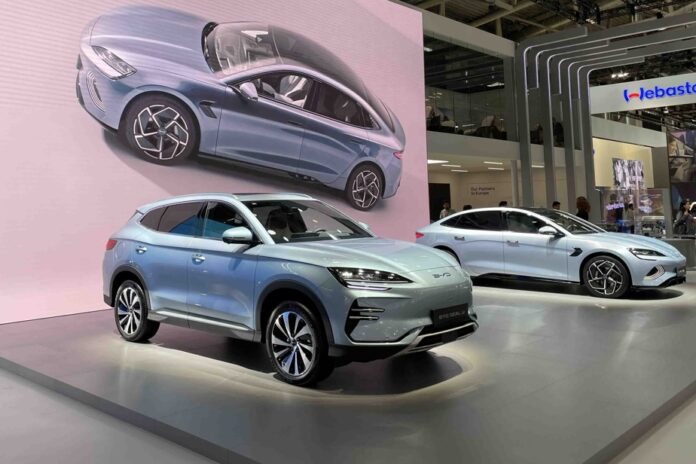(Munich, Germany) Two years ago, the leaders of IAA Mobility sought to renew the traditional motor show. By first moving it from Frankfurt to Munich. Then, by opening it to other types of mobility and to young shoots too. And to popularize it further, the exhibition areas of this “fair like no other” were divided between the Munich fairgrounds and the city. A hybrid show, in short, with public spaces accessible free of charge, installed by car manufacturers, essentially.
Two years later, much of the diversity of this show has disappeared. Bicycles and alternative means of transport, omnipresent in 2021, have largely been swallowed up by equipment manufacturers who came to present their advances for cleaner, more connected and safer mobility.
By several government agencies also such as those of Israel, Hungary, Mexico, France and Canada.
For the “Invest in Canada” delegation, this was a first participation in this international event.
Especially since, adds our interlocutor, “in a context of major industrial transition, Canada is doing well with concrete advantages. As the only country in the Western Hemisphere to possess all the critical minerals needed to produce electric vehicle batteries. In fact, every step of the supply chain – from mining to battery recycling – can happen in Canada. When you add access to clean energy, a skilled workforce, supportive governments and strategic access to the North American market, it’s clear that it invites a lot of interest from large companies.” In addition to Investing in Canada, note that the Government of Ontario was also represented.
This biennial event has also been a platform of choice for many Chinese automobile manufacturers. In addition to the giant BYD, several young companies with bizarre names (Forthing, Seres and Leap Motors) exhibited the products that they intend for the entire European continent in the more or less long term. Once this stage is well underway, many of them are already eyeing Canada and the American market, thinks Jean-Luc Dalibard, representative of BYD. “You’ll see soon enough that the batteries in our vehicles don’t fear the cold,” he says, half-seriously, half-jokingly.
As for the traditionalist manufacturers, the Volkswagen group (Audi-Porsche-Volkswagen), BMW, Renault and Mercedes presented many ideas. With the exception of Audi (Q6 e-tron) and Renault (electric Scenic), nothing really concrete. Only ideas for tomorrow. It was enough to arouse the anger of environmentalist groups who, placards in hand, brandished “No Future for IAA”. The event, report the organizers, still welcomed more than half a million visitors.















